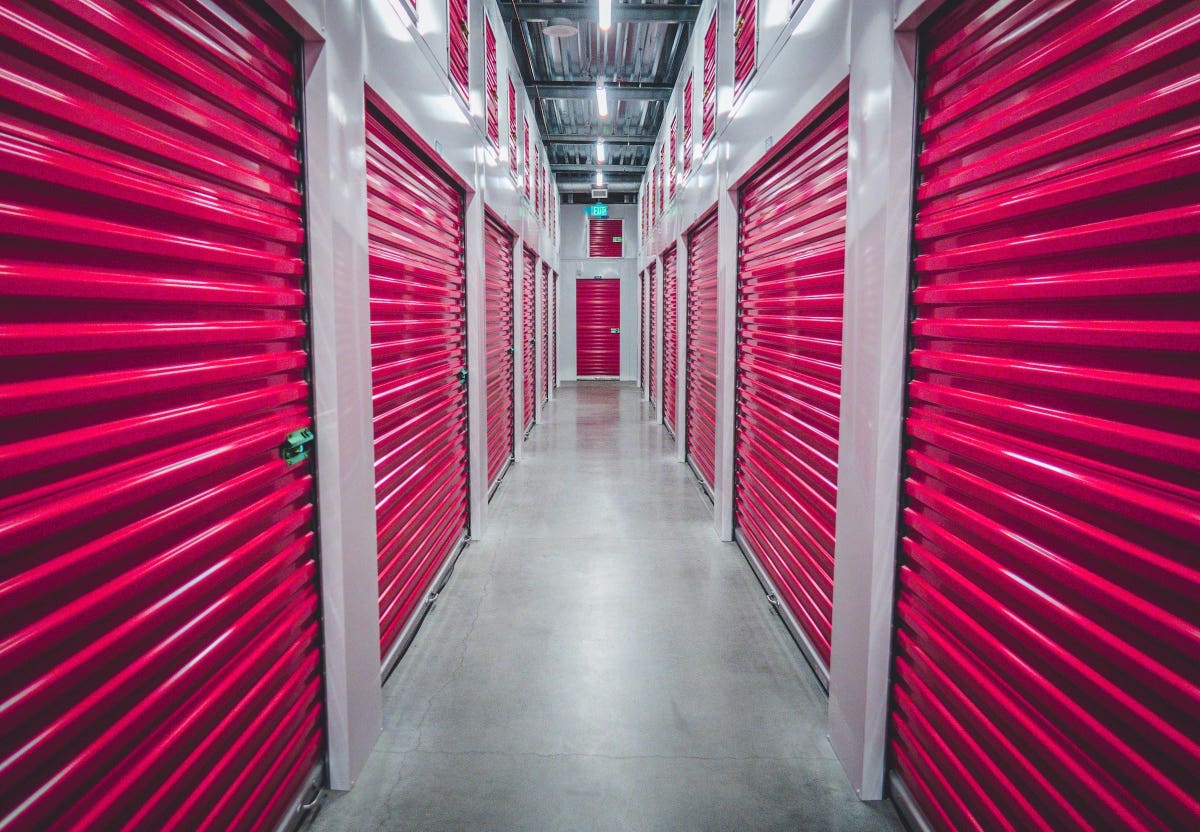The self-storage industry has been one of the fastest-growing sectors in commercial real estate for the last 40 years.
As of 2023, the United States has 51,206 storage facilities, offering a staggering 2.04 billion square feet of rentable space. With 11.1% of American households, or roughly 14.6 million, making use of these facilities, it raises an important question: Is renting a storage unit a smart financial decision?
Last week I received an email from a reader asking the question, “I pay $318/month for my storage unit. Should I keep it?”
My response was quick, “Well, I’m not sure. What are you keeping inside the storage unit?”
If the gentleman was storing a $500,000 RV indoors during the cold North Dakota winter, it’s probably not a bad investment. On the other hand, if the gentleman was storing boxes full of unknown clutter, it most likely is a bad investment and would be worth it for him to go through the boxes and stop spending the money.
And given the ten most popular items stored in self-storage, most units are not worth the price you are paying.
To help you decide, here is a helpful formula you can use:
A Simple Formula: Your Guide to Financially Justifying Your Storage Unit
Before you commit your hard-earned money to remaining in a storage unit (or getting one for the first time), you’ll surely want to evaluate if it makes sense financially.
To assist, here’s a simple formula that helps you gauge the financial sensibility of your storage unit:
Net Benefit = (Value of Items × Depreciation Shield) − (MonthlyCost × Months)
Let me break this down a bit more with an explanation of each part:
- Value of Items: What are your stored items worth today if you sold them?
- Depreciation Shield: How much value does storing these items preserve, represented as a percentage (e.g., 5% becomes 0.05).
- Monthly Cost: Your storage unit’s monthly fee.
- Months: How long you intend to use the storage unit.
This financial equation will help you evaluate whether the monthly expenditure on your storage unit is justified by considering the value of the items being stored and the financial depreciation that is being saved by storing the merchandise in a unit.
If the resulting ‘Net Benefit’ number is positive, your storage investment is sound. If it’s negative (Net Loss), you’re probably better off without it.
Case Studies: Practical Scenarios and Their Implications
Let’s look at how this formula works in a variety of circumstances:
1. The Entrepreneur:
Imagine you’re an entrepreneur with business inventory valued at $50,000. Storing these items in a climate-controlled unit protects them from deteriorating, effectively mitigating their depreciation by 20% every year. With a monthly cost of $200 and usage planned for a year:
Simple Math: ($50,000 × 0.2) – ($200 × 12) = $7,600 (Net Benefit)
This suggests that your storage investment is a good one.
2. The RV Owner:
You own an RV valued at $300,000. By storing it adequately, you mitigate depreciation by 5%. At a $500 monthly fee for 12 months:
Simple Math: ($300,000 × 0.05) – ($500 × 12) = $9,000 (Net Benefit)
Again, your storage unit seems to be a good investment.
3. Old Furniture:
You’ve stored old furniture from your parents with a current market value of $1,000. The furniture neither appreciates nor depreciates, leading to a 0% Depreciation Shield. With a monthly cost of $150 for one year:
Simple Math: ($1,000 × 0) – ($150 × 12) = -$4,800 (Net Loss)
It might make more financial sense to sell the furniture or find another solution.
4. Paperwork:
You have documents and paperwork stored, valued roughly at $100. They don’t appreciate in value, giving a 0% Depreciation Shield. At a storage cost of $50 per month for a year:
Simple Math: ($100 × 0) – ($50 × 12) = -$600 (Net Loss)
Financially, you should consider an alternative storage solution.
5. Seasonal Clothing and Décor:
You rotate seasonal clothing and holiday decorations stored, which you value at $2,000. These items don’t particularly depreciate but also don’t appreciate, so the Depreciation Shield is 0%. The monthly cost of the storage unit is $100, and you’ve kept it for one year.
Simple Math: ($2,000 × 0) – ($100 × 12) = -$1,200 (Net Loss)
Given the Net Loss, you might want to consider alternative ways to store these items or even sell some to offset the cost.
A Step-By-Step Guide for Long-Term Renters
For those who don’t have a set timeframe for using their storage unit—a common situation—it’s crucial to apply the formula over different durations, such as 6, 12, or 24 months.
This way, you can see how the cost-benefit landscape changes as time passes.
To apply the formula to your situation:
- Consider the belongings in your storage unit
- Estimate their current market value if you sold them today
- Consider the rate of depreciation if you don’t keep the unit
- Input the data into the formula adding in your monthly expense
- Examine the Net Benefit or Net Loss for different durations to better understand the investment you’re making—or losing.
If you’ve held your storage unit for a consider amount of time, add up the total amount you’ve spent and compare it to the value of the items inside multiplied by the depreciation shield to determine your best financial step forward.
The Intangibles: What Numbers Can’t Capture
Of course, physical possessions don’t always boil down to straight numbers.
For instance, the sentimental value of some items might go beyond the simple dollars and cents, defying a monetary valuation.
That being said, the formula I’ve offered above doesn’t consider every financial consideration involved with your storage unit.
It would also be wise to consider the opportunity cost: could the money spent on the storage unit be better invested elsewhere for a higher return? Insurance for stored items, accessibility, and market fluctuations are other variables that, while they may not easily fit into a mathematical formula, should certainly influence your decision-making process.
But my hope was to give you something to wrap your head around to help you financially evaluate the cost of your storage unit.
Conclusion
Renting a storage unit isn’t just about solving an immediate need for space; it’s an ongoing financial commitment that demands periodic evaluation.
By systematically applying a simple mathematical framework, you equip yourself to make financially savvy decisions regarding your storage unit, whether you plan to keep it short-term or for an indefinite period.
Read the full article here













Leave a Reply